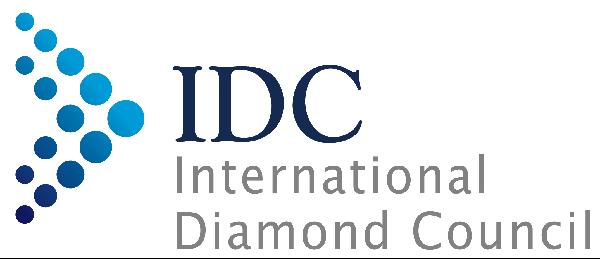International Diamond Council (IDC): Definition, Role, and Purpose
The International Diamond Council (IDC) is a global organisation that was established to create and maintain standardised rules and guidelines for diamond grading, nomenclature, and trade practices. Founded jointly by the World Federation of Diamond Bourses (WFDB) and the International Diamond Manufacturers Association (IDMA), the IDC plays a crucial role in ensuring uniformity and consistency in the diamond industry across the globe. It seeks to maintain the integrity, transparency, and trust of the diamond trade, facilitating smoother transactions and a more efficient market.
Founding and Establishment
The IDC was created as a collaborative effort between the WFDB and the IDMA in response to the need for a unified system that could establish and govern internationally accepted standards for grading and naming diamonds. The World Federation of Diamond Bourses, founded in 1947, represents diamond exchanges and bourses (markets for buying and selling diamonds) around the world. The IDMA, established in 1946, represents the manufacturers of diamonds, both natural and synthetic, across different countries.
Given the increasing complexity and scale of the global diamond trade, these two organisations recognised the need for a cohesive set of rules and guidelines to foster fair practices and ensure diamonds were graded consistently, regardless of the country in which they were traded.
Primary Objectives and Functions
The International Diamond Council serves several key functions within the diamond industry. Some of its main objectives include:
Establishing Standard Diamond Grading Criteria: One of the IDC’s most important roles is to establish globally recognised and accepted rules for diamond grading. The council provides a set of grading standards that help determine the value of a diamond based on the key 4 Cs—carat weight, cut, colour, and clarity. These grading criteria ensure that diamonds are evaluated in a consistent manner, irrespective of where they are bought or sold.
Maintaining Nomenclature Standards: The IDC ensures that the terminology used in the diamond industry is standardised and recognised worldwide. This includes establishing standardised nomenclature for different diamond characteristics, cuts, and classifications. By creating a common language, the IDC helps prevent confusion and misunderstandings in the global diamond market.
Facilitating Trade and Promoting Transparency: The IDC fosters trade relations among diamond dealers, manufacturers, and jewellers by promoting ethical practices and encouraging fair trade. It provides guidelines that ensure transparency and clarity in transactions, enabling businesses to operate with confidence in both established and emerging markets. This is particularly important for preventing fraudulent or misleading practices that could damage the reputation of the industry.
Regulating Diamond Certification: The IDC plays a key role in regulating and promoting the use of diamond grading certificates issued by recognised laboratories. These certificates offer an independent and unbiased evaluation of a diamond’s quality and authenticity, ensuring that both buyers and sellers have access to accurate and reliable information.
Encouraging Industry Cooperation: The IDC serves as a platform for cooperation among different stakeholders in the diamond industry, including producers, traders, and retailers. By bringing together the WFDB and IDMA, the council facilitates an open dialogue and collective decision-making that helps shape the future of the diamond market.
Global Impact and Significance
The work of the International Diamond Council has far-reaching implications for the diamond industry on a global scale. Some of the key areas where the IDC has made an impact include:
Global Standardisation: Through the IDC’s efforts, diamonds are graded and described according to a uniform system, making it easier for buyers and sellers to compare diamonds from different regions of the world. This reduces the potential for disputes over the quality and value of diamonds, increasing the overall trust in the industry.
Supporting Diamond Bourses: The IDC works closely with diamond bourses and exchanges around the world, helping them adopt and enforce the grading standards and ethical practices established by the council. This strengthens the reputation of diamond trading platforms, ensuring they are recognised as reputable and trustworthy in the eyes of consumers and industry professionals alike.
Promoting Ethical Standards: The IDC has been instrumental in promoting ethical sourcing and responsible trading practices. It advocates for the conflict-free diamond trade and ensures that diamonds are sourced responsibly, free from human rights abuses. This aligns with the broader goals of the Kimberley Process certification scheme, which aims to prevent the trade of conflict diamonds.
Enhanced Consumer Confidence: By standardising diamond grading and nomenclature, the IDC helps enhance consumer confidence in their diamond purchases. Consumers can rely on grading certificates and labels that follow established and internationally recognised standards, ensuring that the diamonds they purchase are accurately described and priced.
Adapting to Technological Advances: As the diamond industry continues to evolve, the IDC remains committed to adapting its rules and guidelines to reflect technological advancements in diamond grading and manufacturing. For example, as lab-grown diamonds become more prevalent in the market, the IDC has worked to ensure that they are properly identified and classified according to distinct and transparent criteria.
Key Contributions of the International Diamond Council
Development of the International Diamond Grading System (IDGS): The IDC has been instrumental in developing the International Diamond Grading System (IDGS), which is widely used in diamond grading worldwide. This system is designed to ensure consistent grading practices and provides a clear, understandable framework for diamond evaluation.
Collaboration with Laboratories: The IDC collaborates with independent diamond grading laboratories around the world to ensure that they follow the established guidelines for grading and certification. This collaboration has helped raise the overall standard of diamond evaluation, providing consumers and businesses with more reliable and transparent information.
Promoting Education and Training: The IDC is also involved in educating industry professionals about the latest developments in diamond grading, certification, and nomenclature. By providing training and resources to diamond dealers, graders, and jewellers, the IDC ensures that the standards it sets are consistently followed across the industry.
